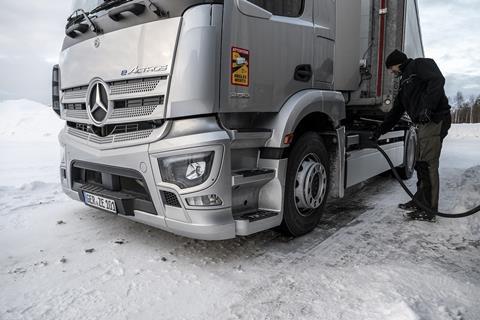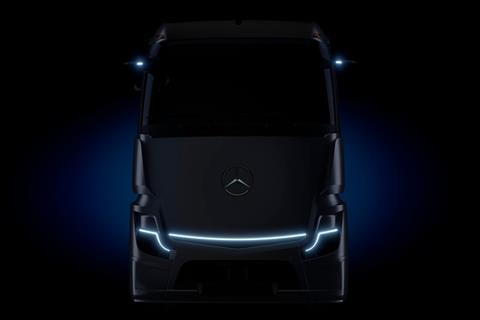Whether it’s for long-haul, construction site, or distribution transportation, the Mercedes-Benz brand offers a range of solutions for light-duty, medium-duty, and heavy-duty truck segments. Headquartered in Stuttgart, Baden-Württemberg, Germany, Mercedes-Benz Trucks has been known for its innovative spirit, introducing advancements in efficient drives, automated driving, and safety systems. Recently, the company proudly announced that a significant portion of trucks manufactured in Europe, specifically one out of every five, comes from its plant in Worth, Rhein. This statistic highlights the brand’s substantial presence in the market.
Mercedes-Benz Trucks’ commitment to innovation has contributed to its ongoing success. Through continuous advancements, the brand strives to exceed customer expectations, providing tailored solutions to meet various transportation needs. The focus on optimizing efficiency, enhancing safety and improving overall performance showcases Mercedes-Benz Trucks’ dedication to delivering high-quality trucks.
Market presence
Mercedes-Benz Trucks is a global company that operates in various markets around the world. Mercedes-Benz Trucks has active markets in Europe, North America, Latin America, Asia-Pacific, the Middle East and Africa.

Ownership structure
Mercedes-Benz Trucks is a wholly owned subsidiary of Daimler Trucks, one of the world’s leading commercial vehicle manufacturers. Direct investment via Daimler Truck shares has been possible since 10 December 2021, as the Daimler Truck Holding share is listed on the Frankfurt Stock Exchange.
Power types
Mercedes-Benz Trucks is actively working towards achieving ambitious net zero targets by embracing a wide range of alternative fuel types and power sources. The company’s portfolio includes electric, biodiesel, natural gas, and upcoming hydrogen technology, reflecting their commitment to sustainable transportation solutions.
In the electric vehicle sector, Mercedes-Benz Trucks has made significant progress with its eActros (300 and 400 extended range) and eEconic models, showcasing their integration into the electric vehicle market. These electric trucks aim to reduce emissions and provide eco-friendly transportation options. Furthermore, the introduction of the eActros Longhaul expands the company’s range of fully electric vehicles, solidifying their position in the net zero commercial vehicle sector.
Recognizing the significance of biofuels, Mercedes-Benz enables all of its diesel vehicles to be fueled with HVO biodiesel without requiring modifications or limitations. This approach allows customers to make environmentally conscious choices while benefiting from the brand’s reliable and efficient diesel engines.
Hydrogen technology has gained traction as a promising alternative power solution in the pursuit of decarbonization. In response, Mercedes-Benz Trucks has introduced the GenH2, a hydrogen fuel cell commercial vehicle. Currently undergoing testing on dedicated tracks and public roads, the GenH2 represents the company’s commitment to exploring and developing hydrogen technology as a viable and sustainable option for the future.
Mercedes-Benz Trucks demonstrates its dedication to driving the transition towards a greener and more sustainable transport industry by offering a diverse range of alternative fuel options, including electric, biodiesel and hydrogen. Through innovative product development and ongoing research and development efforts, the company strives to shape the future of commercial vehicles, fostering a cleaner and more environmentally friendly road sector.
















